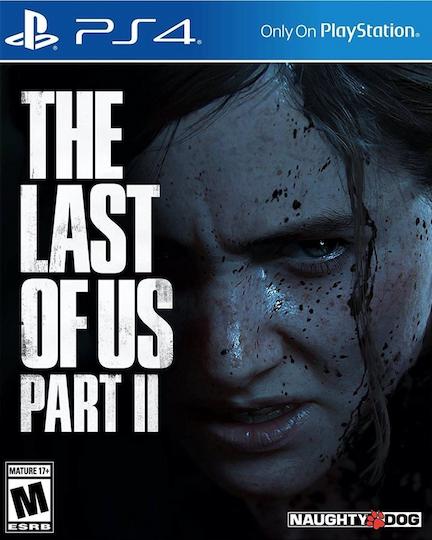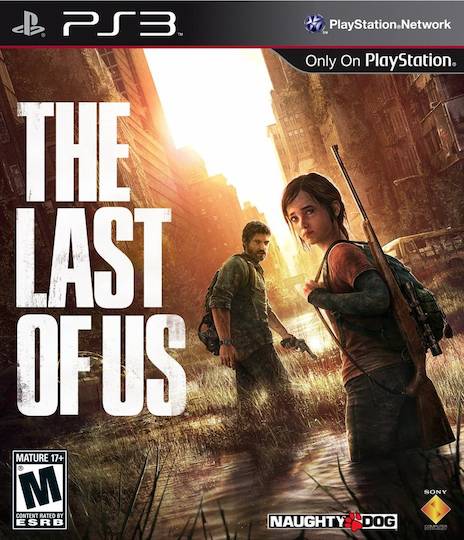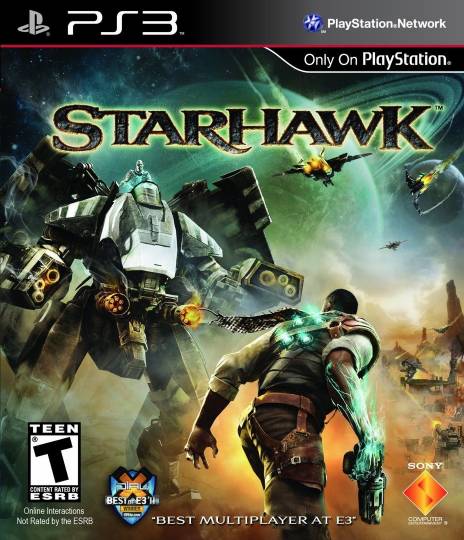



Last fall featured one of the strongest holiday games lineup in recent memory. Games such as Bioshock, Super Mario Galaxy, Team Fortress 2 and Rock Band were all arriving within weeks of each other and life was good. However, it’s easy to overlook the fact that there were just as many major titles that fizzled in the last year. Consider the following sampling from Metacritic:
Lair, average review score 53:
Lair has major problems with its use of motion-controls, despite nailing basic movements. Flat out broken contextual sequences, a choppy camera, and groan-inducing level design are hardly reasons to recommend it.
Haze, average review score 55:
To be blunt, the actual gameplay of Haze is mediocre mixed with a side order of boring and I have to say this is really disappointing because we know the developers, Free Radical of Time Splitters fame have done much better games with far superior gameplay.
Alone in the Dark, average review score 58:
Every good idea here is brought down by bad basic design, including a shoddy third-person camera, a too-slow first-person mode, and bizarre forced switching between the two.
Too Human, average review score 65:
The game is simply schizophrenic; it attempts to be all things to all people and never succeeds in executing any of them well. The end result is in dire need of polish and focus, and that doesn’t solely apply to gameplay mechanics.
These were all hotly anticipated games, many coming from companies such as Silicon Knights and Free Radical that have a reputation for excellence. Even with experienced developers and boatlods of production capital, they managed to churn out games that were bland, buggy and unbalanced.
Some might blame the publishers for pushing games out the door without proper QA. Others fault the complexity of modern graphics and physics. While these are all valid complaints, these problems have been around for decades and are unlikely to change. What’s new is the culture of hype that surrounds these games.
The plague of endless previews in modern games journalism is inflating player expectations. Major titles come prefaced with up to a year of screenshots, videos, press releases, developer diaries, exclusive interviews, etc. These are little more than carefully worded company blurbs, but they get promoted as news by most gaming blogs. Furthermore, any independent opinions and reviews are stifled by NDAs and embargo dates. After ten months of glowing words and big promises, who could fault a gamer for expecting that the best thing since sliced bread was coming to their home console.
To combat this cycle of hype and disappointment, I firmly believe that games journalists must move away from pushing promotional material as news. Commendable online publications such as Rock, Paper, Shotgun and Giant Bomb already feature scaled-down preview coverage and increased original content. We can only hope that more blogs will follow their example, or we’re all in for a lot of disappointment.
In the meantime, I suggest following Yahtzee’s advice and defaulting to pessimism cautious realism whenever a new title is announced.





September 9th, 2008 at 3:39 am
I blame Kotaku. But mostly because it’s an easy target. =P
Seriously though, it’s a very real issue. Not only are these ‘preview’-cum-news sites hyping the crap out of games which are often years away from release, but they are also presenting the, dare I say, ugly face of gaming to the wider public. I mean, realistically, I think we both know that a mainstream media outlet is more likely to pick up a story on Kotaku that one on The Brainy Gamer…
Like Yahtzee, it’s easy to despair, but really – I don’t *want* to! I shouldn’t *have* to default to cynicism, pessimism and curmudgeonly dissent about games! I love games, and want them to succeed and apparently these sites do too (only to turn around and viciously rip games to shreds one day after release, of course)… What’s a guy to do…
September 9th, 2008 at 7:15 am
Kotaku has nothing to do with it, in fact, they don’t really do previews much at all. The worst offenders are sites such as Gamespot, IGN and 1Up (though I love 1Up dearly), who publish previews frequently for saps that need to know absolutely every detail about a game before they play it.
Me, I don’t read previews anymore. I’ll read the commentary and issues surrounding the previews but never the previews themselves. For instance, Denis Dyak turned out to be far more interesting than the game he was promoting.
September 9th, 2008 at 1:27 pm
while I’d certainly agree that the preview culture is somewhat of a problem in a culture of overhype, I think game fans bear a decent amount of responsibility for that as this sort of information is clearly popular in the marketplace and I’m not sure that the big publishers could really afford not to buy into it. Not that it’s really helped ol’ Chapter 11 Ziff Davis a whole heck of a lot…
For me, though, there’s always a split between big AAA projects that I hear a ton about and smaller stuff that comes out of nowhere for me. Personally I think the games market is broad enough that there’s always going to be littler indie or foreign games that’ll surprise me and I rarely find a year to be disappointing.
September 10th, 2008 at 1:50 pm
@Ben: I had them in mind too to be honest, though I’m a big fan of the blog in general. The preview content, however, creates a terrible noise/signal ratio for them, and their great original content gets lost in the shuffle.
@Daniel: I personally don’t think very highly of sites like Gamespot, so it doesn’t bother me when they sink to hyping previews. Other gaming blogs aspire to be better than that, I believe.
@Chris: You’re right that publishers can rarely afford not to provide previews, they’re popular content that generate a lot of revenue. For gaming blogs, I believe a better solution would be to provide the preview screenshots / press blurbs in a distinct section, separate from the news feed that contains game industry news, reviews, editorials, etc. That would allow them to stop treating promotional material as news.
Thanks for your comments!
September 11th, 2008 at 1:57 pm
Experience has told me that defaulting to pessimism just leaves everyone feeling miserable annoyed – quite the opposite of what gaming should do. Rather, the aim should be to lower our expectations about what games are going to be able to do. If we expect them to be incremental improvements on games we already enjoy, rather than giant leaps into new experience, then we’re unlikely to be disappointed.
September 11th, 2008 at 5:31 pm
@Jim: You’re right, perhaps “cautious optimism” would be a better attitude. I certainly have no interest in increasing the amount of snark and bitterness in the blogosphere.
I also generally agree with scaling our expectations to incremental improvement. Barring a few exceptions that were easy to forecast (Portal and Braid for instance), paradigm-changing innovation in gaming comes from the places we least expect. For instance, Club Penguin will do more for virtual worlds than World of Warcraft in the long run.
Thanks for your comments Jim, I’m a big fan of RPS.
September 11th, 2008 at 7:49 pm
In recent weeks, I’ve been taking a step back as to how I look at, and review, games. One of the reasons for this step back is to provide some space for me to rework my reviews, improve them, but also to get my head in gear and figure out from where I’d like to approach games on a whole.
Generally, I don’t pick up a game with the pessimistic mindset that you’ve suggeted, preferring to take Jim’s role. I’m excited by many games and what they’re trying to do, yet you’ve got to be realistic about the advancements and innovations that some games are trying for.
Much of the marketing hype focusses on finding the hook in a new title that differentiates it from the masses and in promoting that hook, the expectations of what the game will deliver may also be sucked into the atmosphere too.
For instance, Mirror’s Edge innovation is to try and embody the character in the body of a first-person avatar, something which Far Cry 2 is also attempting to do according to their recent promotional material (and interview on RPS). However, what about the rest of Mirror’s Edge? Will people pick up the game thinking it’s the reinvention of christ, expecting it to completely blow them away, or are they going to pick it up expecting a familiar experience with just a hint of something new. I’m approaching the release of Mirror’s Edge as “cool, they’re trying something out of the ordinary”. I’m not expecting a deep, mind-bending story, I’m not expecting solid gunplay, I’m not expecting the game will completely surprise me, however, I’m extremely excited to see how they handle the new approach and I really like what I’ve seen of the environmental design.
If you’re expecting the world, I think you’ll be disappointed. If you’re expecting something new and interesting, maybe you’ll be surprised.
I’ve ceased reading previews, I’ve ceased reading reviews (until I’ve written my own), though I’m happy to read interviews, and I’m trying to now approach each game a fresh. I want to pick up a game and just see what it, standing alone, has to offer me. Sometimes it’s not always possible (I keep accidentally reading the introduction paragraph of Fallout 3 previews) but I generally do alright.
September 15th, 2008 at 12:51 am
I think that’s a good approach, Daniel. By blocking out the noise and focusing on the game itself, your reviews end up being more honest and original. I know I’ve been avoiding the “first five minutes of Fallout 3” gameplay videos, because I’m looking forward to experiencing them firsthand.
September 16th, 2008 at 12:39 am
Just came off an experiment of my own where I surveyed triple-A game previews, looking for the worst hype of the fall. Gamespot actually keeps themselves in check, sticking to the facts and refusing to end with an upbeat kicker. GameSpy embarrasses itself horribly. And while Kotaku refrains from previews, I find they’re generous about the benefit of the doubt. Owen Good owns the year for his take on The Force Unleashed’s trailer: “I don’t mean to make anyone uncomfortable, but good Lord, this gets me hard.”
September 16th, 2008 at 1:03 pm
@Rachael: That’s a great article [link], taking the previews quotes out of context reveals just how ridiculous the expectations are. It doesn’t bode well when journalists can keep their composure “only until President of LucasArts Jim Ward roll[s] the Fracture trailer.”
September 27th, 2008 at 5:16 pm
Personally, I can’t say I usually get excited over stuff being put online by blogs (be it either Kotaku or any other ones). And not to disagree with Rachel but I’ve seen some very, very glowing previews on Gamespot (go check what they have on Far Cry 2 for example), although I can’t say I can complain too much about them since I agree more often than not with them.
To me, the biggest problem are those CGI trailers. They are often very impressive but they often have nothing to do with the game except for the aesthetics of the characters. Take Assassin’s Creed for example: THE trailer for the game (you know the one where he executes the executor), remember how Altair shoots the guy with a crossbow? Well that wasn’t in the game, or the way he disappears in the crowd? No nearly the same thing in the game where you have to be out of sight for a period of time in a box or a cart or something.
Also, giving a look at the comments following a cgi trailer is often enough to make me despair. Most of the comments seem to imply that the users thing that the trailer in question is real gameplay or representative of the gameplay, which is often completely false.
I don’t know if you guys saw the cgi trailer for WAR? Damn, I almost went and bought the game right away after watching it. Then I remembered to go check some real gameplay videos and also, and most importantly, remembered that I don’t even like MMO’s.
I guess what I want to say is that for some reason trailers leave a much stronger impression on me than some guy somewhere in the world that I don’t even know.
September 29th, 2008 at 3:23 am
Very true Nicholas. Everyone knows that the CGI trailers are entirely misleading, but we keep getting excited about them anyways. Cognitive dissonance?